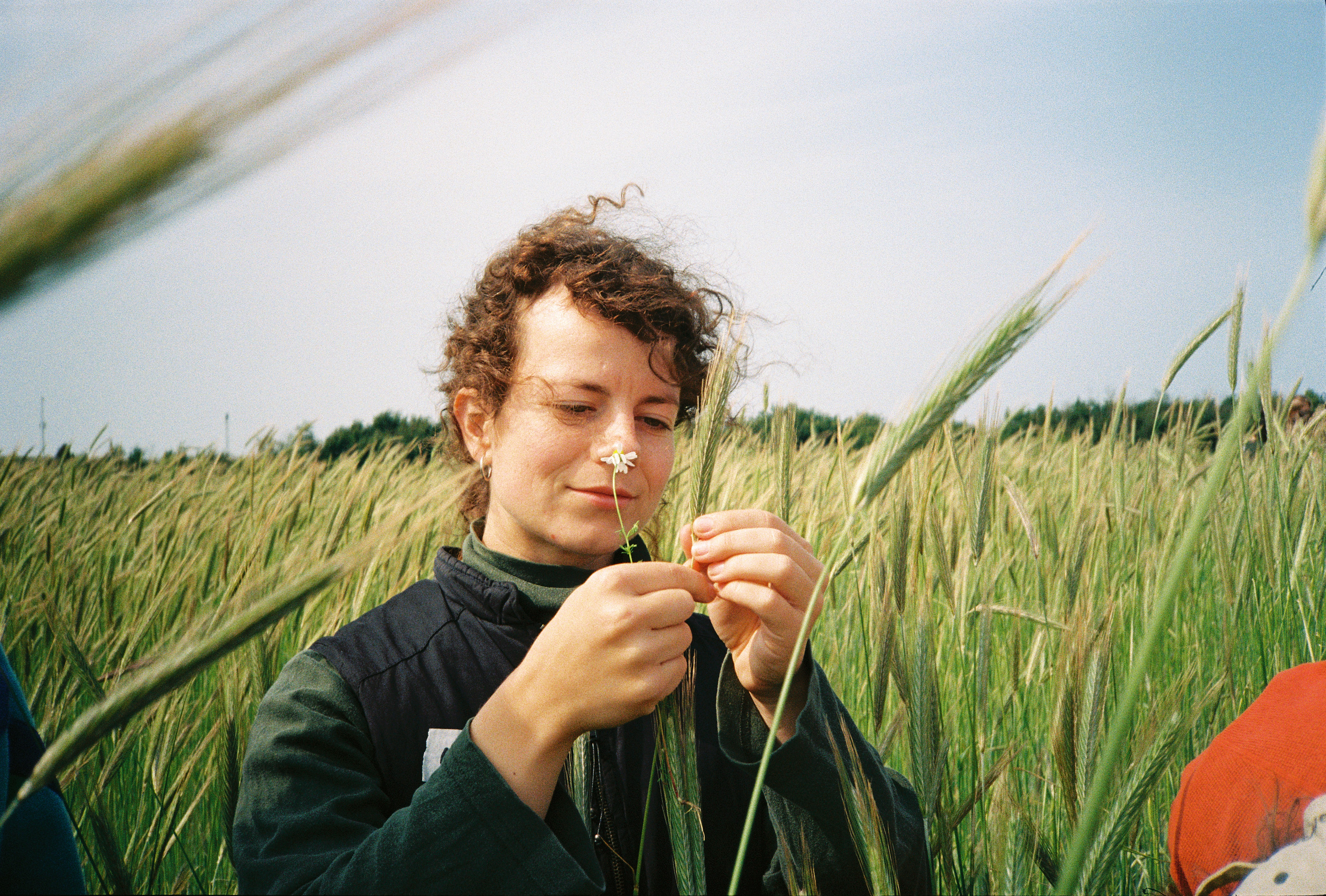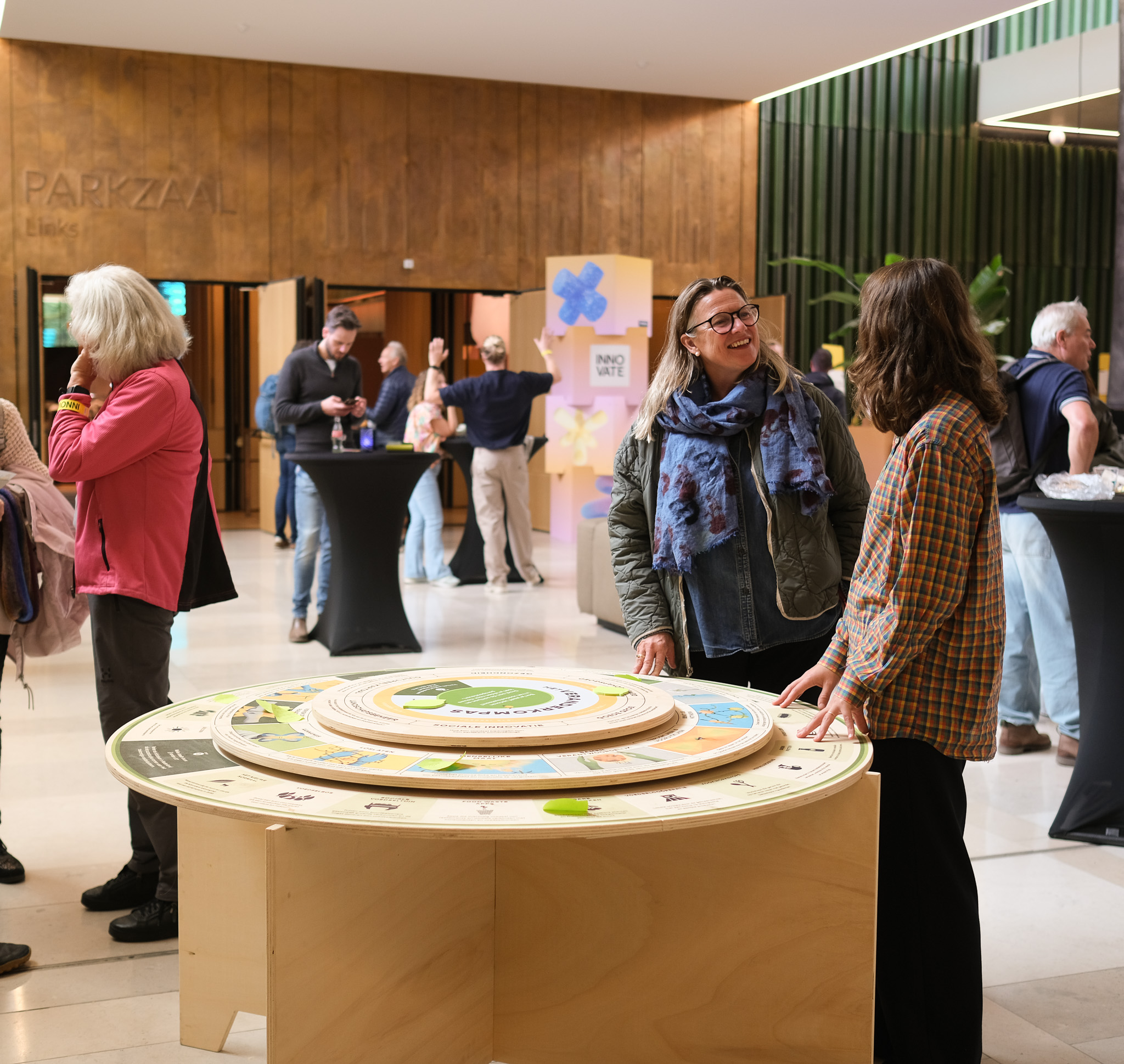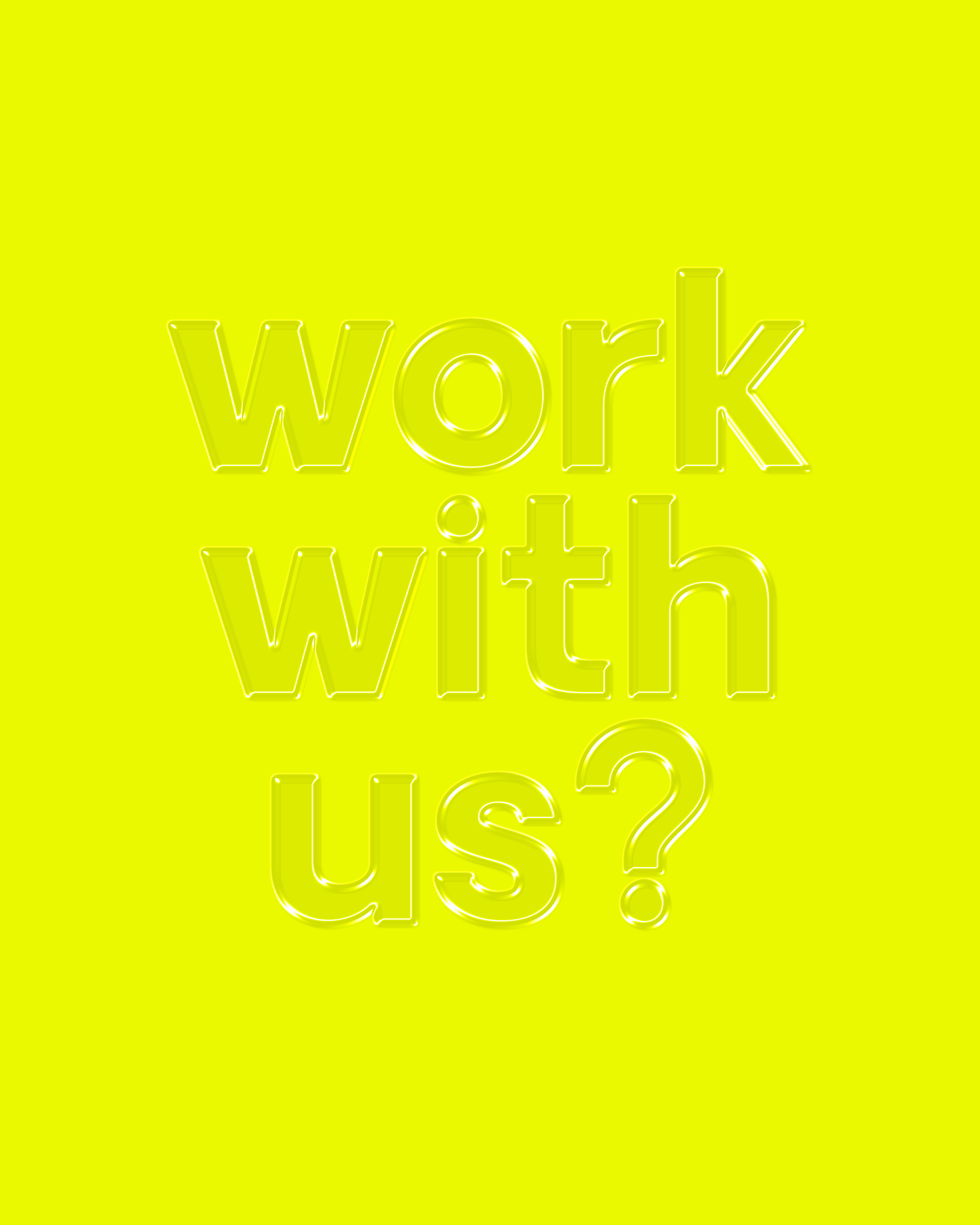A week of feeling food systems on a farm in Zeeland
Bodemkracht: A week of feeling through food systems on a farm in Zeeland
.jpg)
Why queerness could be a transformative power for systems change
In Houston over this winter break, where my family lives, I visited the Menil Drawing Collection where I encountered Marc Bauer’s striking, 10 meters long, mural “RESILIENCE”.
On the periphery Bauer’s mural depicts a multitude of poly-crises: climate disaster, migration, historical and present day racial violence, layered with vignettes of his own childhood experience that Illustrate how these poly-crises manifested in his daily life: his father who always takes the first - rare - piece of steak; desires a BMW to show he is a “self-made man”, and tells his son to “man-up” and not “pussy out”.
As I walked from left to right I was surprised to find a depiction of queer nightlife: vogue dancers, shirtless selfies, a group of three friends (or strangers) sharing intimacy in the smoking area. By centering this scene, Bauer juxtaposes it with the crises and oppression around it, and thus the scene becomes its opposite: hope, joy and liberation.
.jpg)
In many ways, this artwork encapsulates some of the developing themes I’ve been thinking about in both my work and personal life; and it inspired me to interrogate and articulate some of the connections between my own queer becoming and my professional commitment to participatory futures for systems change.
I’ve been toying with the idea of queer futures for awhile now, and I’m excited to finally put first words to paper and see what it might mean and what possibilities this might open up for engaging with a (for me) new set of actors, questions and ideas on the topic of systems change.
A shared experience among many queer folks is the realisation that the world we grew up in is not made for us. This realisation comes when we first glimpse that there is a life possible where the part of us we fear most belongs: a life that no-one told us about before, didn’t show up in our textbooks or on our television; and if it did, we were supposed to fear it.
In Janelle Monae’s afro-futuristic short story collection, there’s a story co-authored by Yohanca Delgado that tells this experience really well. In the story, set in a dystopian, high-surveillance society, the protagonist ends up at a queer party: “a gathering of sinners, worshipping the wrong things.” As she moves through the party, a “small, scared part of her uncoils to the beat,” and she sees for the first time that another world is possible, one where she belongs. After that experience, she cannot bear to betray that world that she only spent a few hours at, and she ultimately risks her life for it.
Audre Lorde describes something similar in her essay on the Erotic: “we have been raised to fear the yes within ourselves, our deepest cravings. But, once recognised, those which do not enhance our future lose their power and can be altered.” Once we recognise the queerness in ourselves, we can no longer go back, and we no longer blindly accept the way things are.

This mirrors my own experience. Once I realised the ways that my own ways of being were limited by a value-system and a set of expectations I grew up with, I could start to reevaluate other aspects of my life. That is: becoming queer in terms of gender and sexuality allowed me to also become queer in other parts of my life: how I work, what I define as “success”, how I structure my relationships, to name a few.
The disillusionment with the way things are gives space for something else to take its place. From disillusionment, you can start to long for something better.
I have a friend who tells me you can spot a queer person in a room by something they have in their eyes: a longing. You can see it in Andrew Scott’s eyes in the movie All of Us Strangers I highly recommend it btw). In a story set in the past, the future, or outside of time (we, the audience, are not sure), he longs for both a past he missed out on and for a future he is not sure he can have.

There is something about this longing, I think, that is the essence of queerness. Perhaps queerness is even synonymous with longing; with futures.
In an exhibition I visited this fall, I heard a line that captures this beautifully. It’s from the short film You Will Be Free by Juliet Jacques, based on a monologue by Cookie Mueller, addressed to her husband right before they both died of AIDS complications in 1989. In the monologue, Mueller describes the afterlife to her husband as “a time finally caught up with us”. There’s a beautiful self-awareness there. They know they’ve grasped something, for them, essential about living, the world just wasn’t there (yet).
Jose Esteban Muñoz’s Cruising Utopia, one of Bauer’s references for the wall drawing that I looked up afterwards, goes as far as saying that Queerness is futures, that queerness is an “ideality”:
“Queerness is a longing that propels us onward, beyond romances of the negative and toiling in the present. Queerness is that thing that lets us feel that this world is not enough, that indeed something is missing.
[it] is essentially about the rejection of a here and now and an insistence on potentiality or concrete possibility for another world.
From that “insistence” comes the willingness to create something new and different. Just looking at how queer culture is often at the forefront of music, fashion and memes, gives evidence to this futurity of queerness.
Muñoz goes on to argue that queer modes of being, in both the present and the past, are concrete utopias, moments where we can experience the potentiality of the future in the flesh.
There are probably many spaces where one can experience those modes of being. Personally I've felt this at queer parties. The best ones I’ve been to are tiny, alternative universes where there are different rules. Where for a moment, we give each other space rather than claim space for ourselves, where we cherish difference, where we can express sexuality without entitlement.

Queer lives, narratives and spaces are rich with potentiality. So looking at the many systemic (poly)-crises we face, what then could a queer futures lens open up?
I find this a really interesting question. Below are my first ideas for what this lens could open up, at a spatial, interaction and personal level.
If queer spaces are pockets of the future in the present, what could we learn from them? Nightclubs and festivals, for example, are often a key organising space for queer people, and one which often combines art, creativity, self expression (and even altered states) as a means to collectively realise pockets of alternative community, values and ways of living. What conditions are needed for these spaces to thrive? And what can they teach us about community resilience in the face of crises?
Engaging better with queer communities (and other communities of difference) could allow us usefully critique the here & now, and can provide glimpses into what alternative ways of being may look like. For example, those that practice polyamory provide ideas for what might be possible if we let go of a need for ownership and security in our relationships (or elsewhere for that matter).
As a designer, it now feels silly that I once expected to be able to post-it note my way into an alternative future; only drawing on my own, very limited worldview. What if we move beyond “including” and instead let alternative perspectives lead our efforts to design for systems change?
I'm also curious about how queer futures relates to other communities of difference such as black and indigenous ways of being. Does any way of being outside of a western, white and hetero norm "queer" the future in a similar way? Or are there important differences between them?
What if we saw queerness as an invitation to search, cherish, and nurture the parts within us that aren’t yet valued; the parts that we consider the strange, the unknown, the “perverted”, “broken” or “ill”? What if those parts could show us what a kinder, opener, a more truthful and interconnected future could look like? And could give us the sustained motivation needed to work towards those futures.
What if accepting that which is different in ourselves allows us to empathise with the difference in others, and can help us be honest in which ways we are complicit in limiting both ourselves and others around us?
How could that make us more ready as a society to embrace change?
To take it back to myself, and to be transparent with y’all, this is a vulnerable thing for me to write about. On the one hand it scared me to touch on topics that are both personal and often still taboo in (my) work context; and at the same time I feel I’m only just scratching the surface of the amazing thinking that’s already been done on this topic, and I am way out of my depth here!
So from anyone who has taken the time to read this and for whom this resonates in some way; I would love to hear your thoughts, ideas it may have sparked, or tensions you experienced while reading.
What does the phrase queer futures mean to you? What queer spaces or modes of being do you know that could be glimpses of alternative futures, and what could we learn from them? What queer seeds have you found within yourself that you are hoping to nourish?
This is a first exploration of this topic for us. We intend to evolve it further in conversation with y'all, and hope to experiment with its design potentiality this coming year. If you'd like to be involved in some way, we'd love to hear it! ❤️ Email us at eva@studiofuturall.com. 💌

Bodemkracht: A week of feeling through food systems on a farm in Zeeland

How do people take ownership and find their own solutions to reshape the food system.

Launching Earthlings - project platform dedicated to engaging with the “polycrisis” through culture

Two opportunities to get involved with our projects this fall.
55 Wallis Rd, Unit K
Hackney Wick, London, E95LH, UK
Havenstraat 157, 3024SJ
Rotterdam, the Netherlands